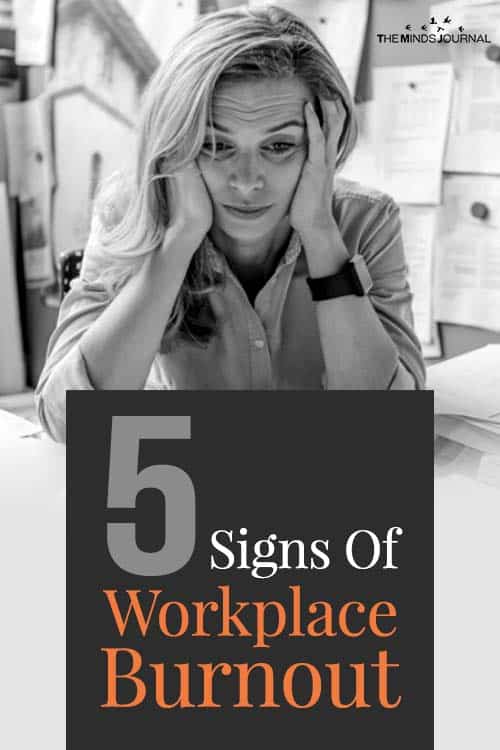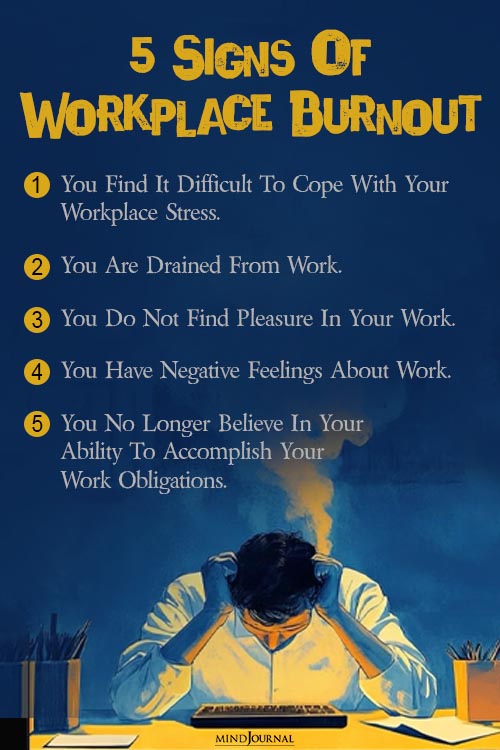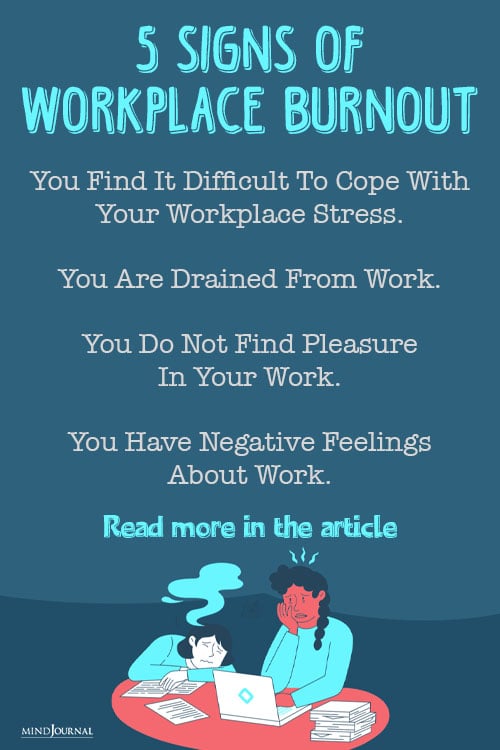Are you experiencing Workplace Burnout? In this fast-paced life of ours, everyone is trying to be something and be someone. Everyone wants to be successful in their jobs, but at what cost? If constant stress from work has you feeling helpless and completely exhausted, you may be on the road to burnout. While you may be familiar with work stress, it can be difficult to recognize the signs of burnout and deal with it.
The World Health Organization recently announced that it is updating the definition of burnout in the International Classification of Diseases (ICD-11).
While the term burnout is commonly applied to many areas of life, the change specifically pertains to the work environment. Previously included in the ICD-10 as a state of vital exhaustion, the elaborated, tridimensional definition refers to burnout as a syndrome that occurs when poorly managed workplace stress becomes a chronic condition.
Here Are Five Signs Of Burnout:
1. You Find It Difficult To Cope With Your Workplace Stress.
While the World Health Organization highlights that burnout syndrome is more than stress, stress is the core of the concern. Coping encompasses the methods utilized to moderate stressors.
A key difference between stress and burnout is that stress may be moderated by copying, whereas burnout develops out of unsuccessful attempts to cope with workplace stress over time.
2. You Are Drained From Work.
When you are experiencing burnout, you may find yourself to be exhausted or depleted from work. In a severe situation, this level of energy is disproportionate to what you have experienced typically. For example, you might recall a time in which you invested the same amount of hours, yet left feeling invigorated from your efforts.
On the other hand, if you are experiencing burnout, a typical shift may be more mentally, emotionally, and physically exhausting than in the past.
“The wise rest at least as hard as they work.”
3. You Do Not Find Pleasure In Your Work.
While your job may be exhausting, the feeling of being connected, purposeful, and fulfilled by your work investment may protect you from workplace stress. Conversely, when you are burnt out, you may not be able to find your work pleasing at all.
Related: 8 Signs You Should Quit Your Job
4. You Have Negative Feelings About Work.
When you think about work, notice the emotions that arise. Do you find that you are inundated with negative sentiments and cynicism? When you are experiencing burnout, you may find it difficult to recognize and connect to positive sentiments pertaining to the workplace. Instead, it may feel as though you are flooded with intense, negative emotions.
Related: Toxic Coworkers: Dealing With 7 Most Dangerous Work Personalities
5. You No Longer Believe In Your Ability To Accomplish Your Work Obligations.
When your workplace stress becomes chronic, you experienced a decrease in your self-efficacy. You may find yourself beginning to doubt your abilities, even for tasks in which you have previously demonstrated competence. Further, this reduction in your assessment of your own abilities may impede your motivation, functionality, and productivity.
While the changes acknowledging this expanded definition are set to go into effect in 2022, if you meet the signs noted above, you may benefit from seeking the assistance of a trained mental health professional.
Link to purchase The Self-Love Workbook
https://www.amazon.com/Self-Love-Workbook-Life-Changing-Self-Esteem-Recognize/dp/1612438660
Link to read my blog:
https://www.psychologytoday.com/us/blog/modern-mentality
Written By Shainna Ali Ph.D., LMHC Originally Appeared On Psychology Today
Hard work and perseverance are admirable traits in the quest for success. But, it should never come at the cost of your physical and mental health. It is important for you to take care of yourself because that is what matters at the end of the day.
If you want to know more about the signs of workplace burnout, check out this video below:













Leave a Reply